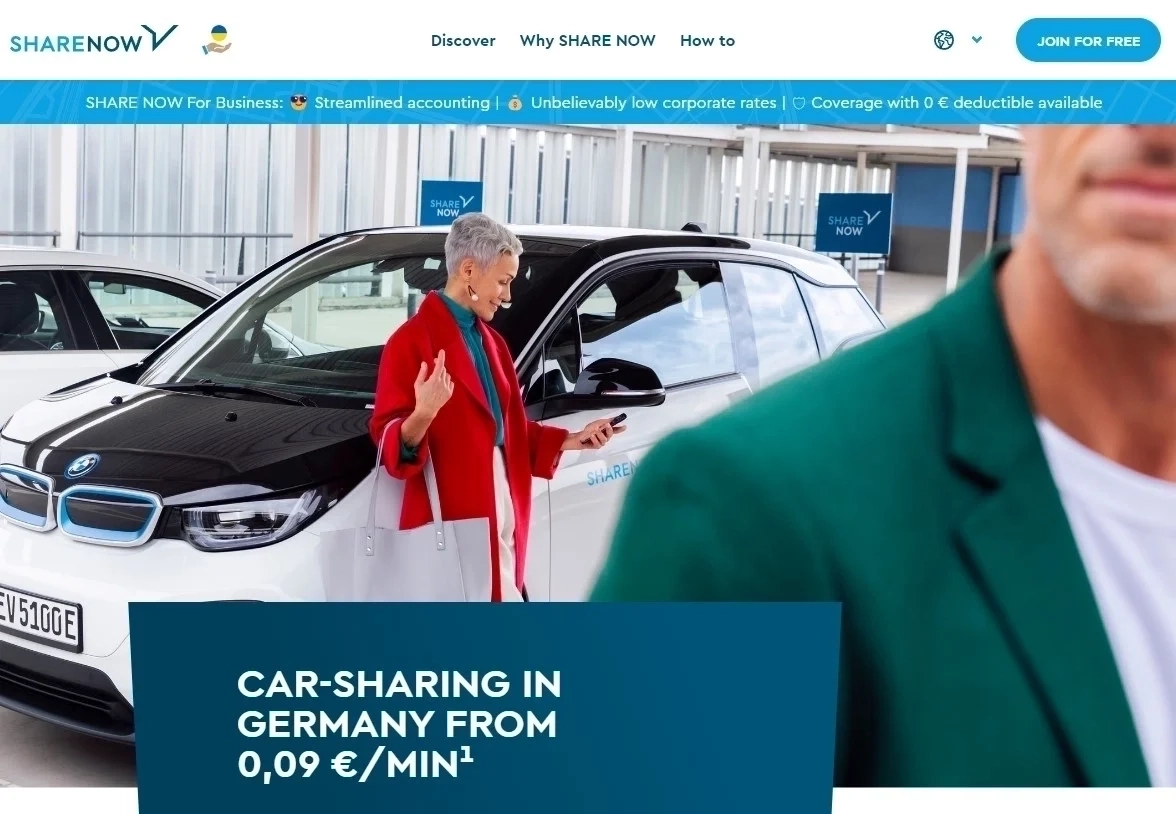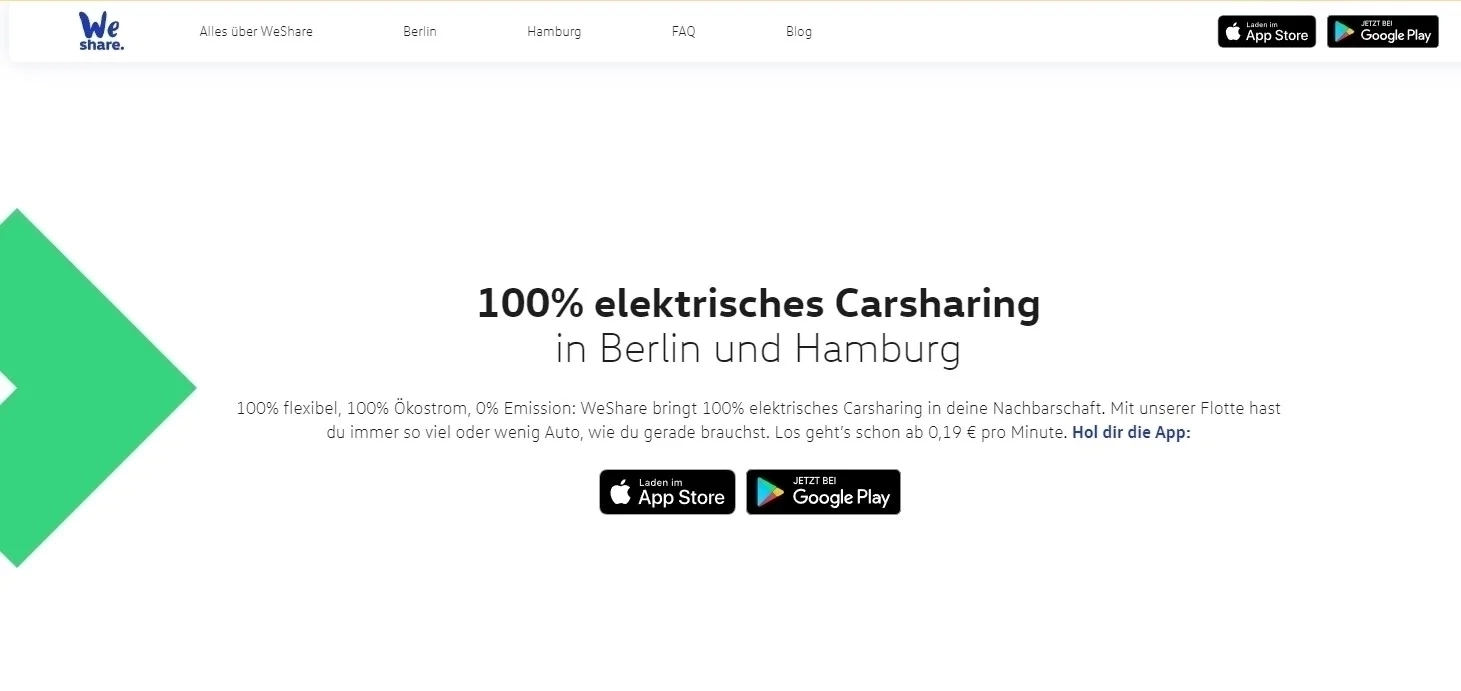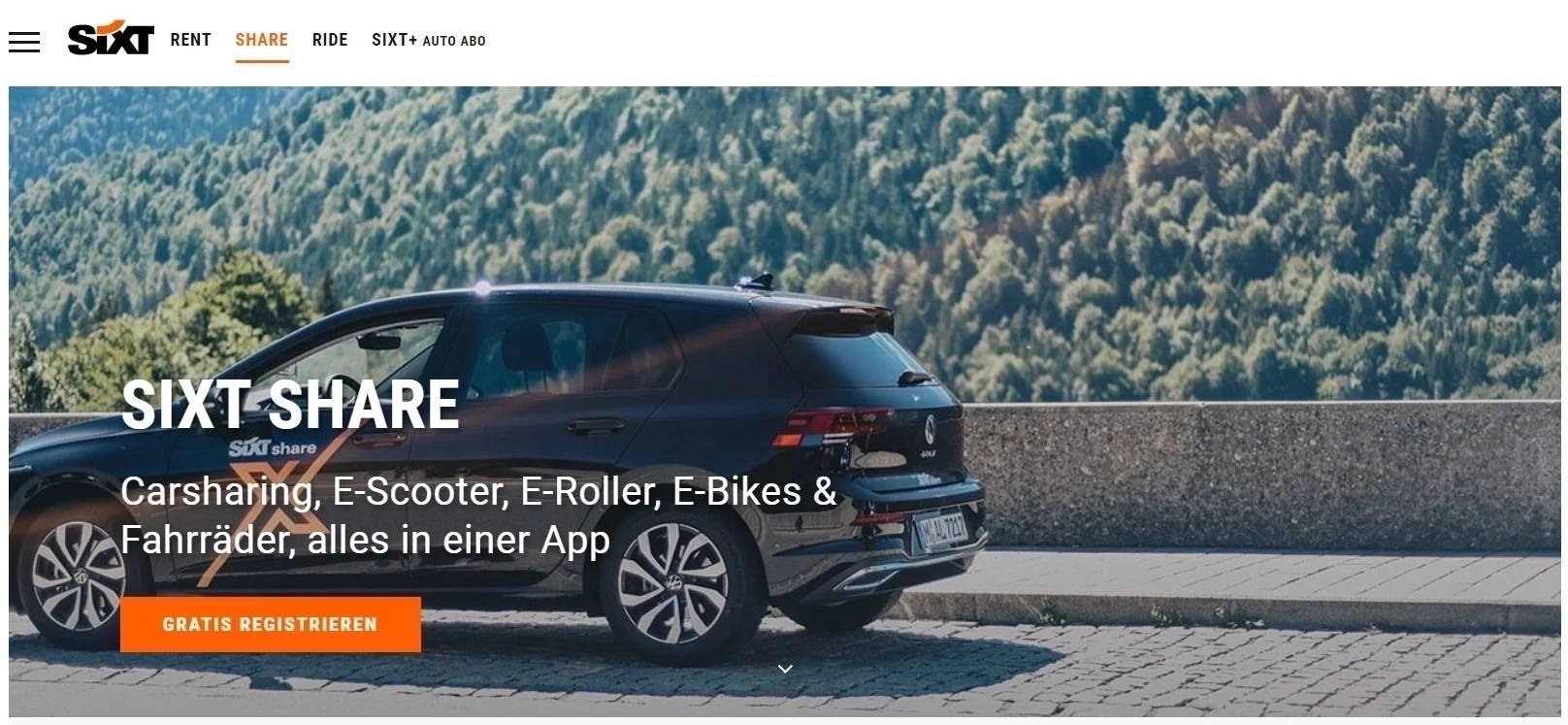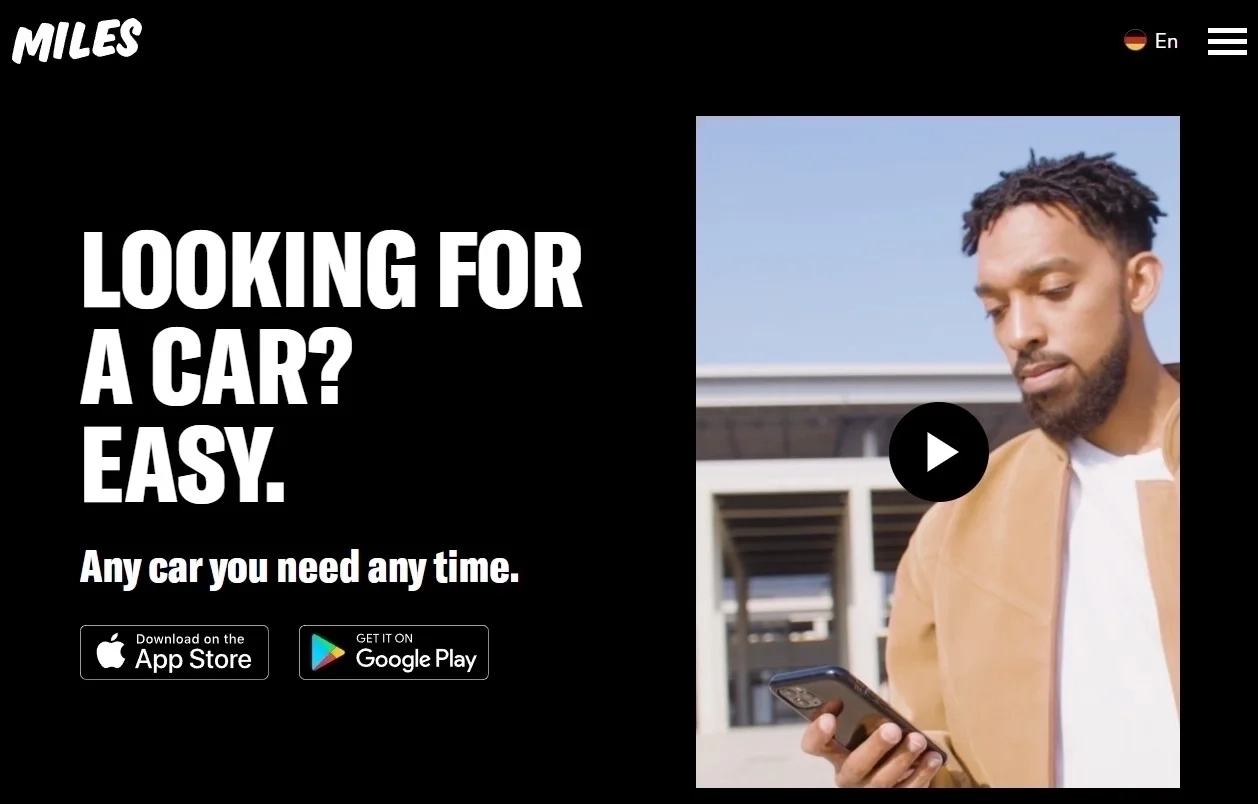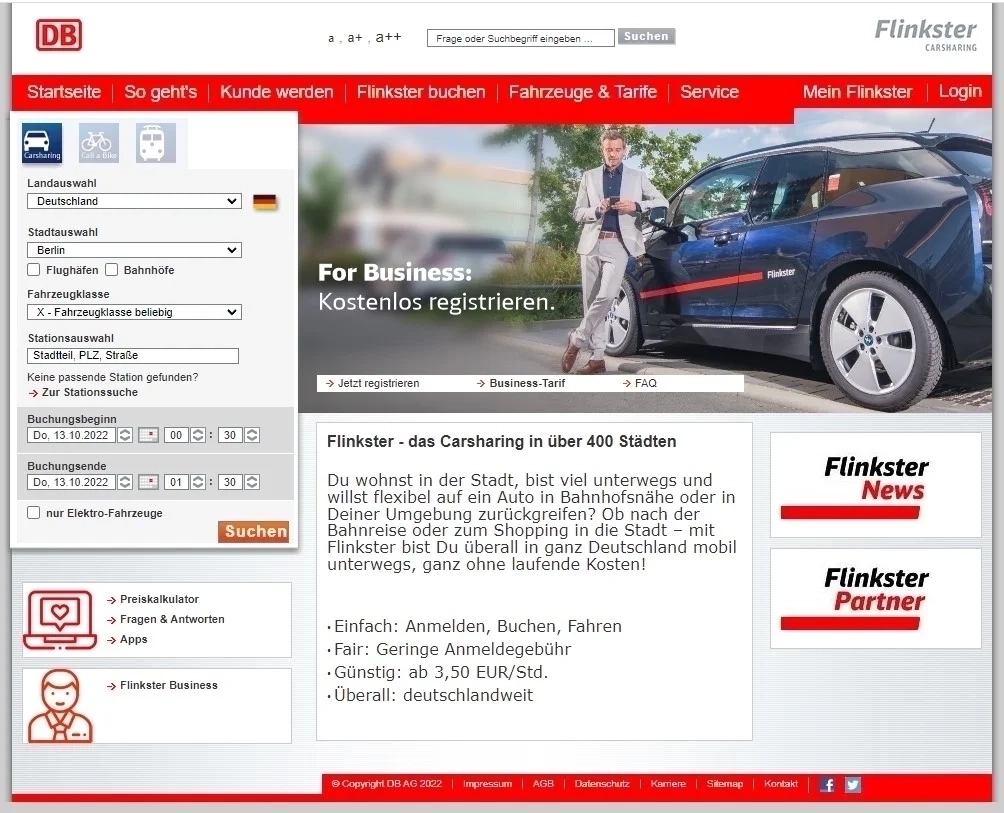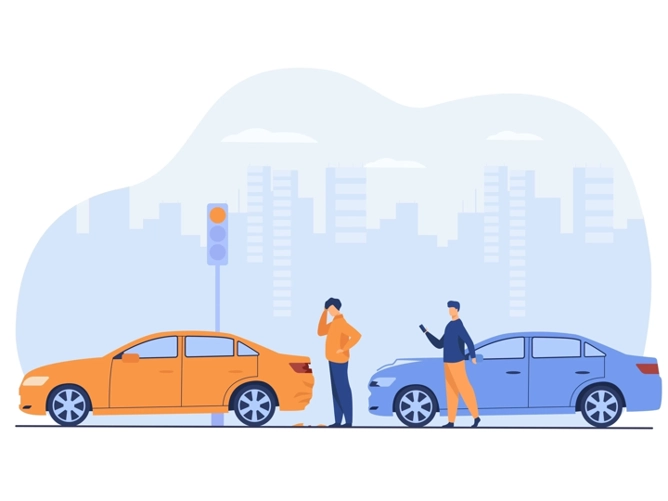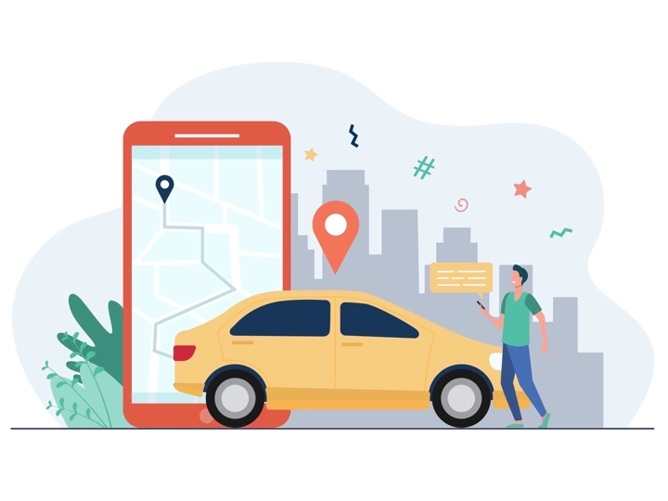
Car-Sharing Companies in Germany [2026] - Live In Germany
Germany is a country with strong links to its automobile industry. Germans make around 20% of their total income through motoring. Car Sharing has become an organized way of car rental. In Germany, people consider it suitable, reliable, and manageable. Consider it as an Airbnb, but for cars only. Basically, with Car Sharing, your rental car is just a click away. You don’t have to book it beforehand; you can book it right away.
When we refer to car sharing, we don’t mean carpooling (or ride-sharing for readers). We also do not refer to ride-hailing apps like Uber or Lyft. Not that these have gotten much of a foothold here in Germany. Car sharing, for our purposes, means renting a vehicle with shared use from a car rental company. This is a convenient, affordable, and greener way to get a car.
Car sharing is a simple way of car rental. In Germany, Car Sharing is common. It is convenient for people who want to rent vehicles for a short distance or a short period. Car Sharing is an impactful way of mobility (shared mobility) in various parts of the world, especially in Germany. This 24/7 availability of vehicles made this idea so successful among the people residing in Germany.
A statistic affirms that almost 3.39 million licensed drivers registered in Germany at the beginning of 2022. And about 243 Car provider companies are present in Germany. About 18% has increased since last year. In addition to this, 30,200 are available for customers now. In Germany, the Car Sharing fleet has grown by 15.2% since last year.
How Can You Rent a Car in Germany?
To rent a car, you need to complete the following steps:
- You have to register yourself on the specific car-sharing app you are using.
- You have to submit your necessary documents. (For example, driver’s license and identification card.)
- Upload clear photos.
Since this process is simplified, thus, the verification can be done with just a few documents, waiting for approval.
Once the documents are approved, your account gets registered and activated.
Once your account activates, you can access the app’s booking system. The first 15 to 30 minutes of booking a vehicle is free, but if you want to reserve it for an extended period, it will cost you. After you reach your reserved vehicle, you will be able to access it with the help of the app or a membership card.
Note: It is to be kept in mind that it is an obligation to park the vehicle in a legal parking spot after use.
Cheapest Car Rental in Germany
How Do You Start Car Sharing in Germany?
Register with multiple car-sharing providers and select the one that best suits your needs. In the beginning, you can use tariffs without paying a primary charge.
For city dwellers, the flexible car-sharing service from Car2go/DriveNow is an excellent place to start. There are also options for car sharing with fixed stations in small towns. Flinkster is Flinkster’s largest provider, offering over 800 stations in over 200 cities.
Inquire about other stationary car-sharing companies in your area. The Federal Association of Car sharing provides this map. By sharing your car, you can save hundreds per year.
- Germany has a lot to offer in car sharing.
- Car sharing makes it practical.
- Car sharing is worth it if you don’t depend on a car daily and travel less than 10,000 kilometers yearly.
- The car without fixed stations (“free-floating”) is ideal for spontaneous trips or short distances. The vehicles can also be opened using a Smartphone and a customer card.
- Fixed stations make it cheaper to hire a provider for planned outward and return journeys. They are available in more than 500 cities across Germany.
What Car Sharing Options are Available in Germany?
Car sharing companies can be classified into one of three categories as listed below:
- Classic car sharing (stationary car sharing)
- Flexible car sharing
- Private vehicle sharing
Car-Sharing Companies in Germany
Classic Car Sharing (Station-based Car Sharing)
This traditional model is most prevalent in Germany. It operates from terminals or stations at specific locations. Station-based Car Sharing has mentioned its requirement; in its name itself. In this Car Sharing service, one can rent a car from its specified parking and later bring it back to its station.
Station-based Car Sharing is the most widespread in all areas. Almost 789,000 registered users benefit from and use station-based Car Sharing. In such conditions, car owners usually don’t use their car often and find it useless; since they already have Station-based Car Sharing near their residences.
Usually, Station-based Car Sharing has the billing based on kilometres or even larger units of time. To prevent confusion, some readily provide payment structures per kilometre.
In Germany, Flinkster and Ubeeqo are the leading station-based Car Sharing services. Its main aim is on commoners with no vehicle, making them the company’s targeted source of income.
Flexible Car sharing (free-floating car sharing)
Flexible car sharing is also known as the “free-floating car sharing” acronym. The business model is based in a particular business district. You can pick up the car and return it anywhere within the specified area as it is not compulsory to leave the car at the spot from where you have taken it.
Free-floating Car Sharing is the particular Car Sharing that is significantly more preferred. About 2,604,000 users are licensed with a free-floating Car Sharing provider.
Free-floating Car Sharing is the best option for One-way trips. After reaching your longed destination, you can cancel your rental car and pay the amount summed up after the trip.
The two major providers of free-floating assistance in Germany are Car2Go, and Drive now (A one-way trip Car Sharing service owned by BMW), combined to form a joint faculty named Share Now.
The vehicle can be accessed via a chip or mobile app if you can spot it. A reservation is not required. Another option is to search online or through a Smartphone app for cars in your area and the exact location. It is possible to make a temporary reservation to ensure the vehicle will still be available when you get there. However, the downside to it is the higher cost for longer journeys. It is the car manufacturer that makes this model.
In 2019, the Volkswagen Group also launched their new Car Sharing service named; WeShare.
In addition to this Sixt Share also launched its services in Berlin.
Currently, all of these are used very often by the people of Germany. But the most widespread is Share Now.
Private Vehicle Sharing
Websites allow private car owners to rent their vehicles peer to peer to other individuals and more prominent, more professional companies. This method of sharing is becoming increasingly popular in rural communities, thanks to websites such as SnappCar or Turo.
Private car sharing is an economically viable option in Germany. However, the quality and availability of vehicles can vary. You shouldn’t expect them to be as modern or as well-maintained as those provided by more traditional car-sharing agencies.
Car Providers in Germany
Throughout the world, Germany ranks in the top 5 for Car Sharing services.
Some of the popular Car Sharing companies are as follows:
- Share Now
- WeShare
- Flinkster
- Sixt Share
- Miles
Share Now:
Car2Go (from BMW) and DriveNow (from Daimler) merged in 2019 to build a fleet of cars known as Share Now. Share Now is the largest car provider agency in Germany, with over 7,400 vehicles under its captivity and almost 1,700,000 registered customers.
The registration asks for a minimal €9.90. Their customers benefit through the low billing prices and weekly packages.
WeShare
WeShare (By Volkswagen Group) originated in Berlin with almost 2300 vehicles. This agency exclusively offers Electric cars. And now, They have upgraded to ID.3 and ID.4 models.
WeShare is easy and quick; the original ride costs 1 Euro and costs almost 0.29€ – 0.34€ per minute for registered people and about0.19€ – 0.24€ per minute for people with memberships.
Sixt Share
Sixt Share is the Car provider agency that allows car rental for both long and short terms, but they have a specific range of travel. It is abundant in free-floating Car Sharing.
Its registration fee is almost 29€. Sixt Share consists of vehicles of a wide range and does not specify a particular type of car. They charge 9 cents per minute.
Sixt Share has always kept its prices guarded. The prices on Sixt Share vary depending on what time of the day it is and car availability.
Miles
Miles has adopted a different way or function. Miles demand money depending on the miles covered. This feature helps customers to save money if stuck in a jam or traffic. Miles has a variety of ranges in automobiles, including small, compact, and large vehicles. It enables the user to select the car of their choice.
A van costs somewhere around 1.12€ per kilometre and a small car mostly costs about 90 cents per kilometre. Parking during rental duration may cost up to 29 cents per minute.
Miles doesn’t allow novice drivers with a new driver’s license to drive certain types of cars.
Flinkster
Flinkster was founded back in 2001. It has almost 4000 vehicles under its facility. To register on flinkster, you have to pay the least amount of 9.00€. Its service is station-dependent vehicles. Flinkster offers weekly rentals in a fixed price range. It provides its facility not only in Central cities but also in 400 small towns.
Flinkster has two options to pay for car sharing:
- The city tariff has a low mileage charge but requires a 10 EUR monthly fee.
- The nationwide tariff includes no subscription fee but higher usage charges.
- Also, customers who have a BahnCard can receive discounts.
Pros and Cons of Car-Sharing in Germany
Germany is not the only country to support car-sharing. However, car sharing is an established part of German culture. It has proved to be a popular choice. How it works will vary depending on which car-sharing platform you are using. More information is available below. In general, however, the pros/cons are the same.
Pros
✅ You don’t have to get car insurance
✅ It is much less expensive than buying a new car
✅ There is no need to search for or pay to park.
✅ Eco – friendly, Affordable
✅ It is simple to arrange
✅ More convenient than public transportation
✅ Only pay what you travel for
✅ No maintenance and repair cost
Cons
⛔️ Liability for passengers’ injuries or losses
⛔️ It takes more planning to plan a trip
⛔️ Logs non-identifiable
⛔️ The standard vehicle may differ depending on the type of car share you have.
Advantages of Sharing Company in Germany
Car-Sharing have a lot of advantages that help both the individual and the society. Some of them are:
Car Sharing helps Save Money
It reduces daily car expenses. It gives freedom from the cost of car maintenance, Insurance, Gas, and other car expenses.
Fewer Cars In Traffic
With car sharing companies taking over, they are helping eliminate cars from roads, which results in streamlined traffic flow.
Fast And More Convenient
Car Sharing is a solution to mobility problems. Public transport may get busy, but car sharing remains peaceful and convenient. Public transport uses indirect routes, but by renting a car, you can save time and reach your destination directly.
Quick Booking
The process of booking is quick and easy. It is a better way of booking than the old-traditional rental systems.
Helps Prevent Air Pollution
With the decrease in the number of cars, air pollution automatically decreases, thus, helping the environment and the weather.
Drive Whenever and Wherever You Want
You can easily access the cars around you so that you can drive whenever you want, to the places of your choice and desire.
Conclusion
Debate rages over whether car sharing is actually ‘working’ in Germany. 67% of Germans use car-sharing services more frequently than once per month.
Car Sharing companies protect their users by offering them full-fledged security. It cuts down expenses and helps the environment stay fresh and unpolluted. Car Sharing is a supported way of life in many aspects. One should switch to Car Sharing, for easy and reliable travelling.
If you find this article helpful, please mention it in the comments section below. Cheers and happy sharing!

Jibran Shahid
Hi, I am Jibran, your fellow expat living in Germany since 2014. With over 10 years of personal and professional experience navigating life as a foreigner, I am dedicated to providing well-researched and practical guides to help you settle and thrive in Germany. Whether you are looking for advice on bureaucracy, accommodation, jobs, or cultural integration, I have got you covered with tips and insights tailored specifically for expats. Join me on my journey as I share valuable information to make your life in Germany easier and more enjoyable.
